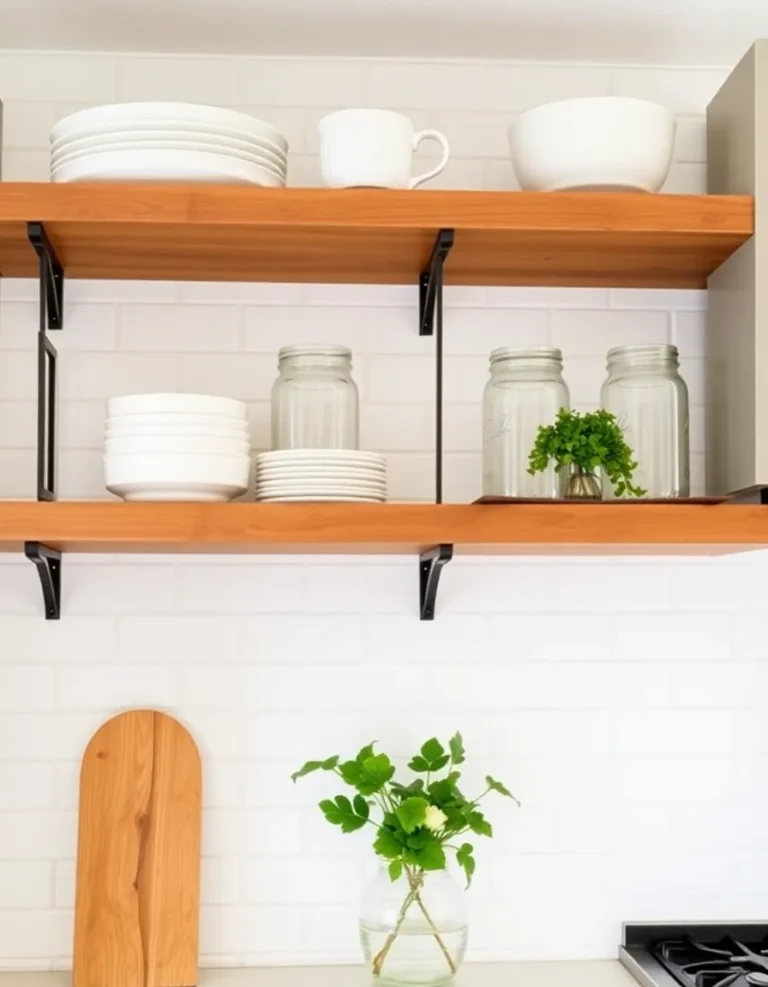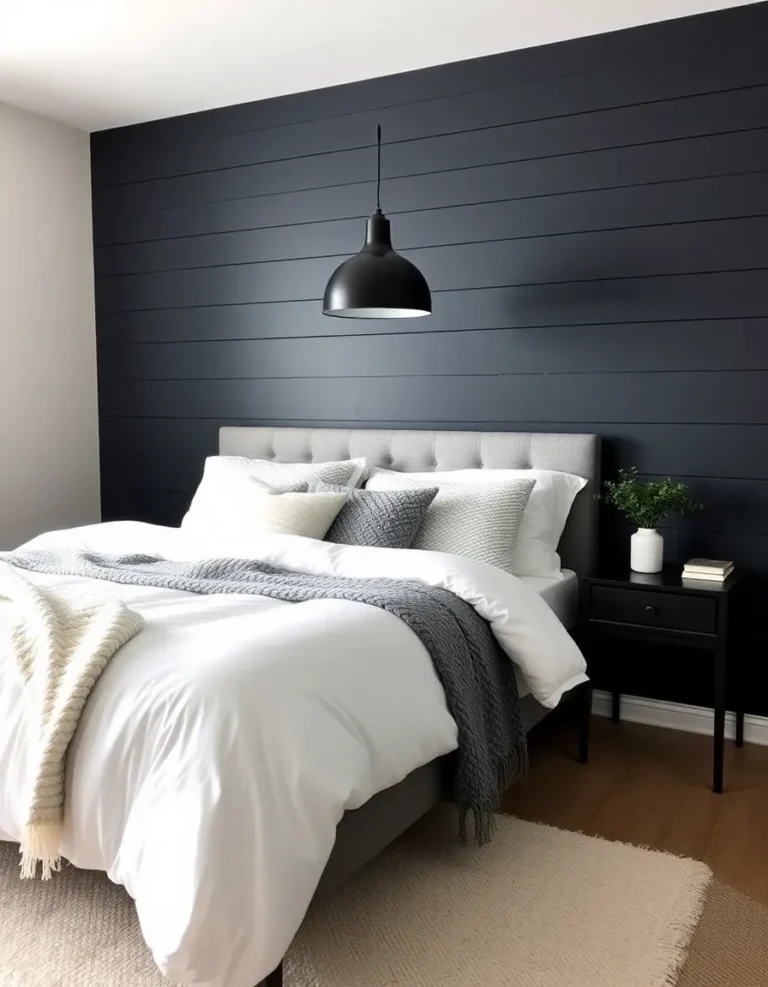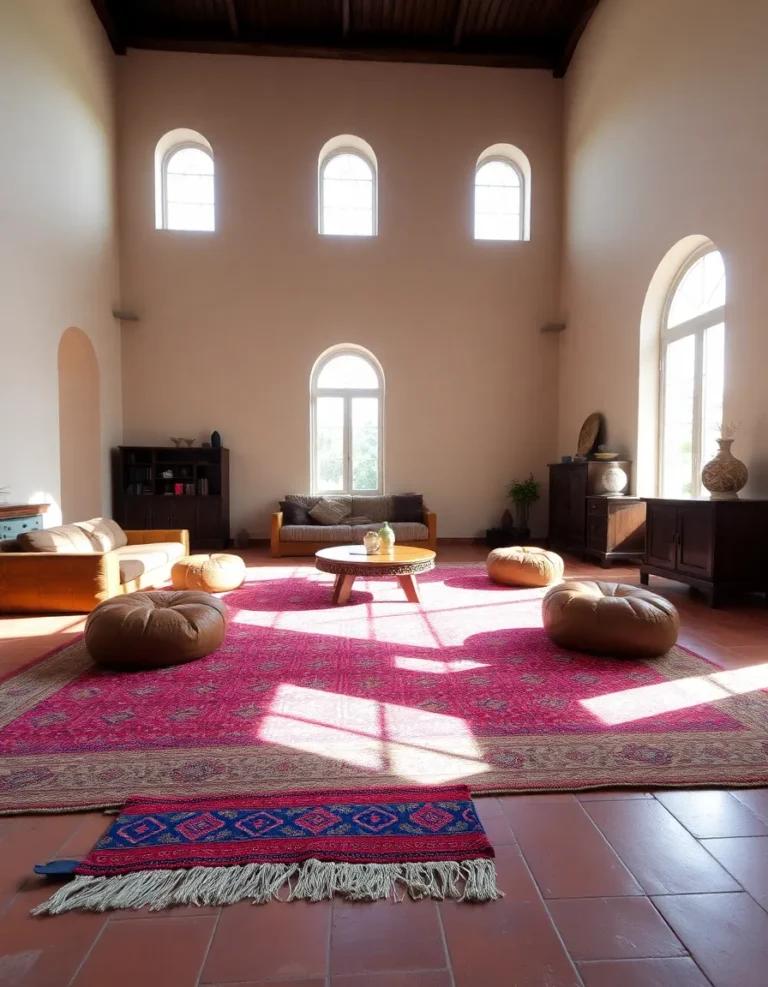17 Scandinavian Dining Rooms That Redefine Minimalist Elegance
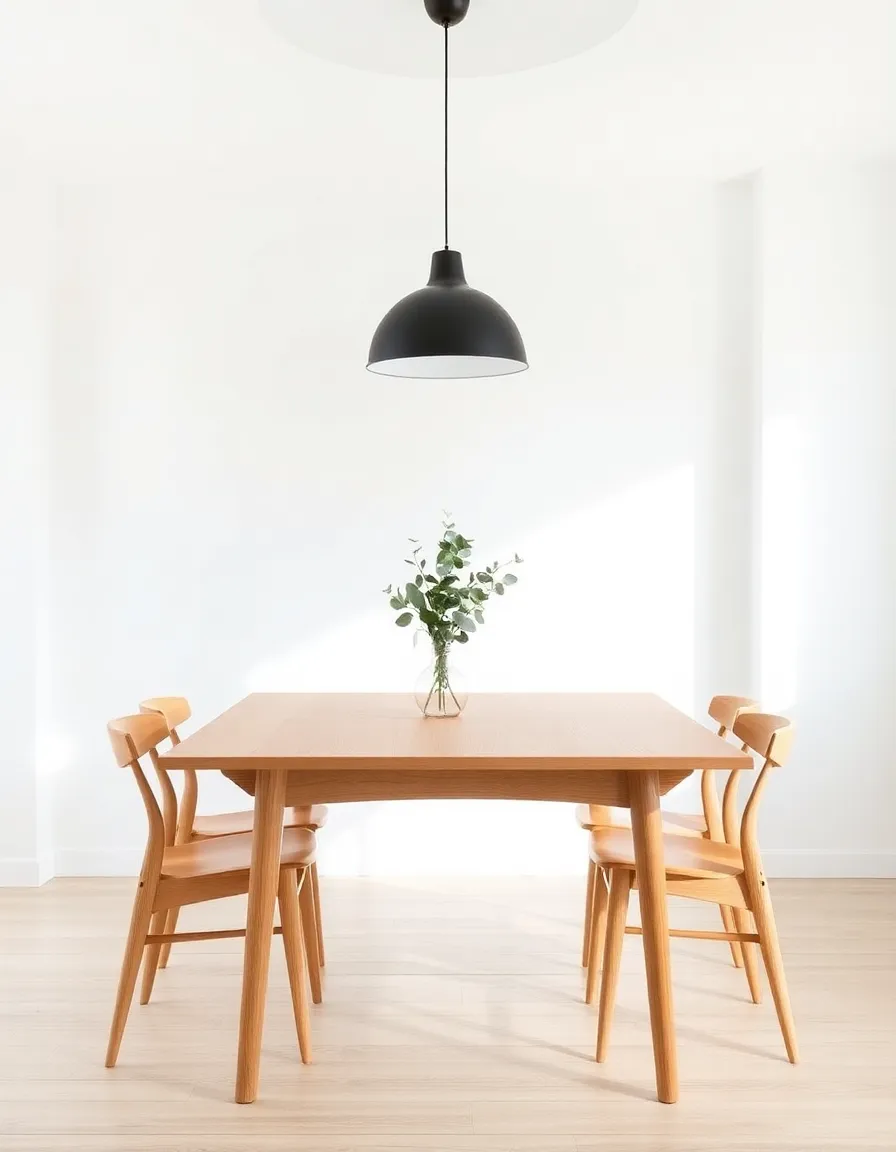
Hey there, fellow design lover! If you’ve ever scrolled through Pinterest or Instagram and found yourself drooling over those impossibly chic Scandinavian dining rooms, you’re not alone. There’s something about that perfect blend of minimalism, warmth, and functionality that just *works*. No clutter, no fuss—just pure, unfiltered elegance. And let’s be real, who wouldn’t want a dining space that looks like it’s straight out of a Copenhagen design magazine?
But here’s the thing: Scandinavian design isn’t just about throwing a white table and some wooden chairs together and calling it a day. It’s an art form—one that balances clean lines, natural textures, and just the right amount of personality. So, whether you’re planning a full dining room makeover or just looking for some inspo, I’ve rounded up 17 stunning Scandinavian dining rooms that’ll make you want to ditch your current setup and start fresh. Ready to dive in? Let’s go!
1. The Classic White & Wood Combo
You can’t talk about Scandinavian design without mentioning the holy grail: white walls paired with warm wood tones. This combo is like the peanut butter and jelly of interior design—simple, timeless, and always satisfying. Picture a sleek oak dining table with tapered legs, surrounded by light wood chairs, all against a backdrop of crisp white walls. Add a single statement pendant light, and boom—you’ve got a space that’s both inviting and Instagram-worthy.
What I love about this look is how effortlessly it adapts. Hosting a dinner party? Throw in some linen napkins and a few candles, and suddenly, it’s *elevated*. Just living your daily life? It still looks put-together without feeling sterile. Win-win, right?
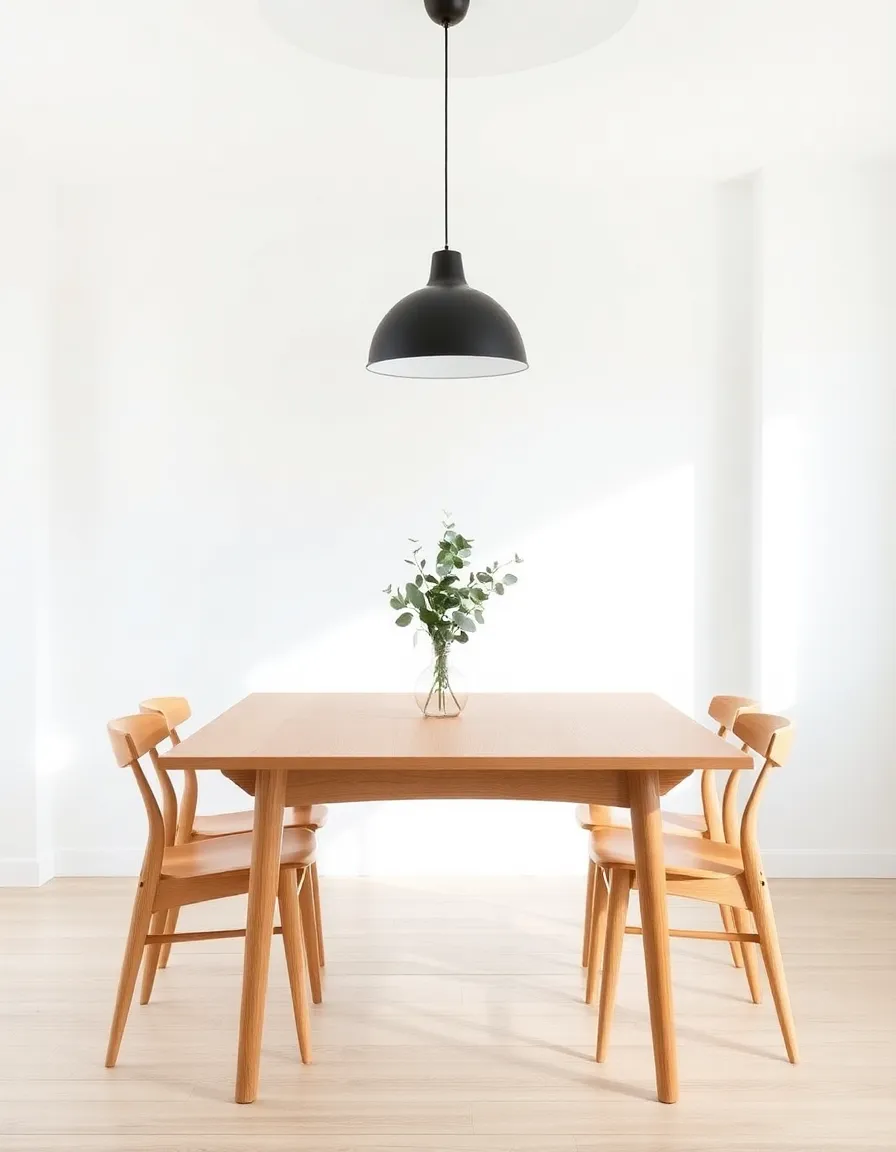
2. Black Accents for Drama
Think Scandinavian design is all about light and airy? Think again. A touch of black can add just the right amount of drama without overwhelming the space. Imagine a white dining room with a matte black chandelier, black-framed chairs, or even a black table runner. It’s like adding eyeliner to a no-makeup makeup look—subtle but impactful.
I once hesitated to introduce black into my own dining room, worried it’d feel too harsh. But guess what? It actually made the space feel more balanced. The contrast keeps things interesting, and it’s an easy way to anchor the room visually. Who knew a little darkness could feel so refreshing?
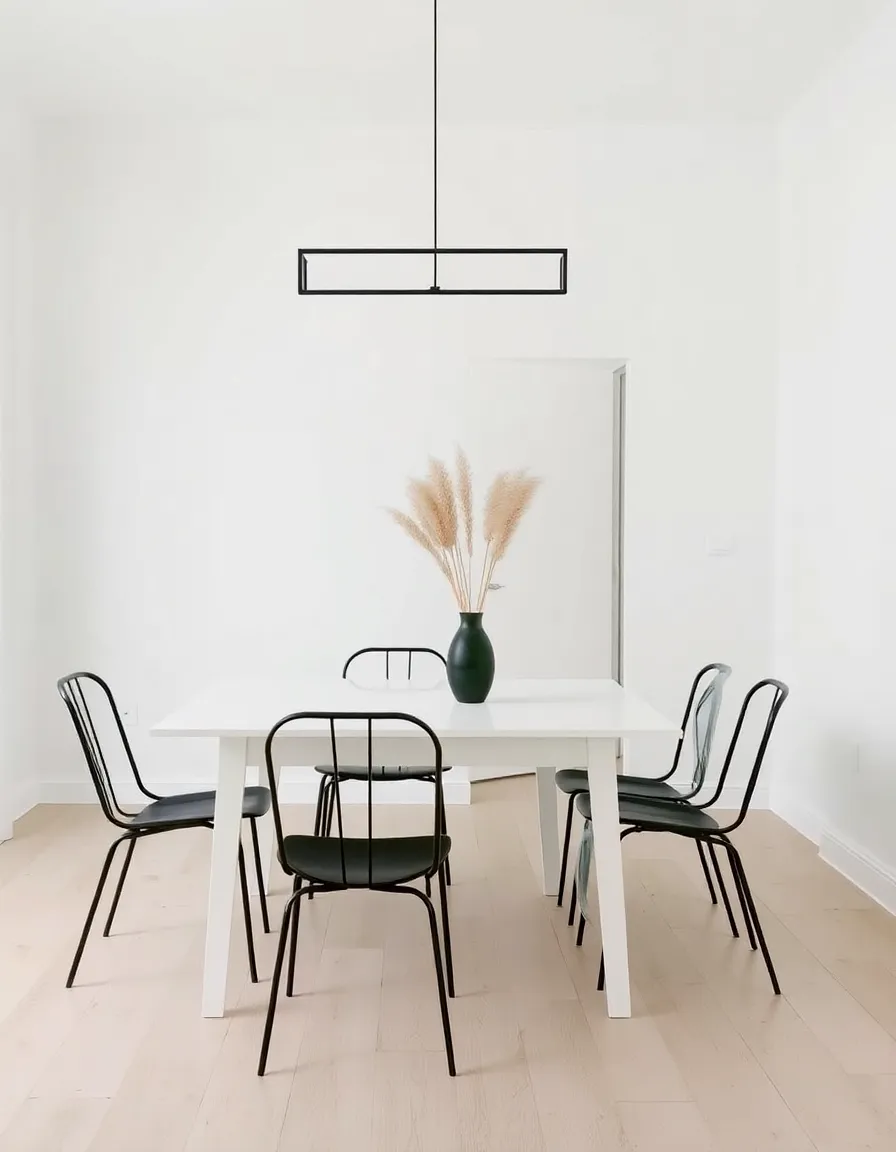
3. The Cozy Textured Look
Scandinavian design isn’t just about looking good—it’s about *feeling* good too. That’s where texture comes in. A chunky knit throw draped over a chair, a sheepskin rug underfoot, or a woven pendant light can instantly make a space feel cozier. It’s like giving your dining room a warm hug.
My personal favorite? A linen table runner paired with ceramic tableware. It’s understated but adds so much tactile appeal. And let’s be honest, there’s nothing worse than a dining room that looks like a showroom. A little texture goes a long way in making it feel lived-in and loved.
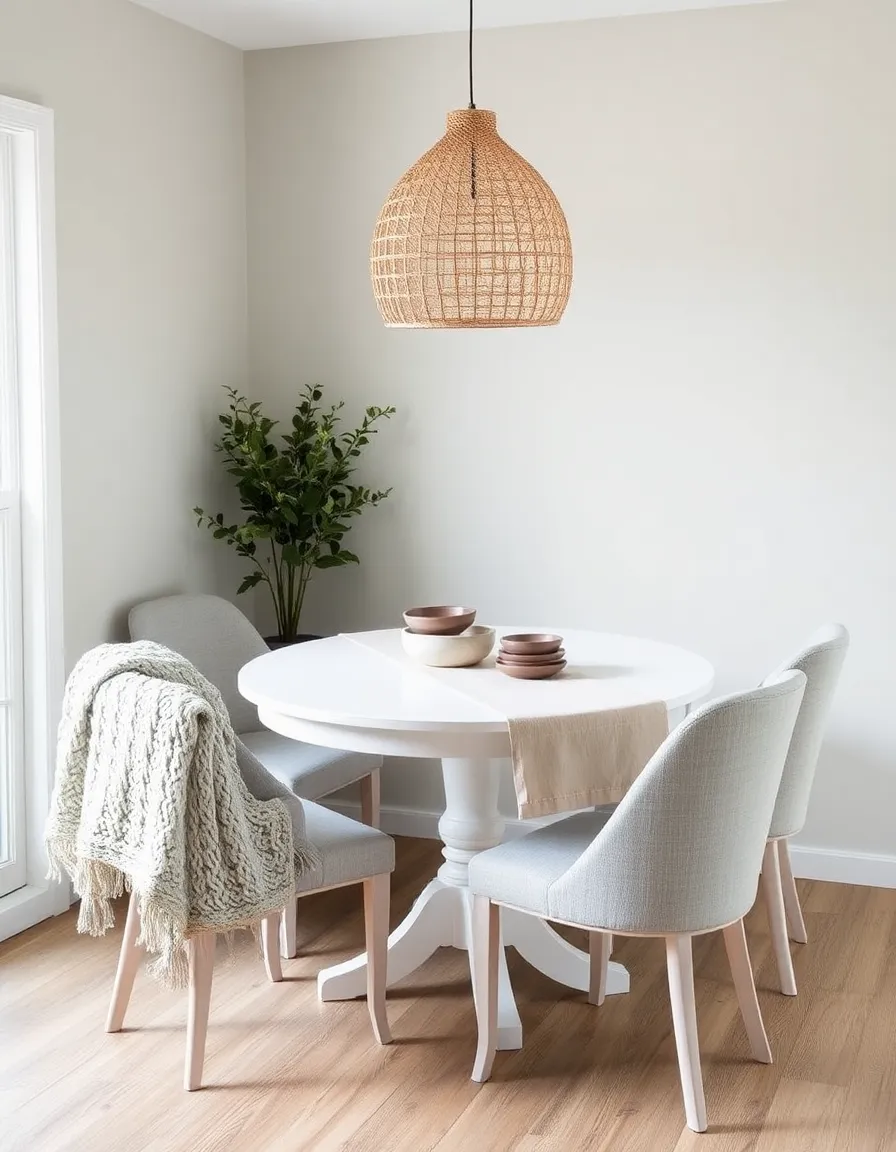
4. Monochrome Magic
If you’re a fan of a streamlined look, monochrome Scandinavian dining rooms are your best friend. Stick to shades of white, gray, and black, and let the shapes and materials do the talking. A gray wool rug under a white table, black metal chairs, and a few well-placed art prints in black frames? Perfection.
I know what you’re thinking: “Won’t it feel cold?” Not if you layer in different materials. A smooth marble vase next to a rough-textured placemat keeps things dynamic. Plus, it’s a foolproof way to make sure everything *just fits* without overthinking it.
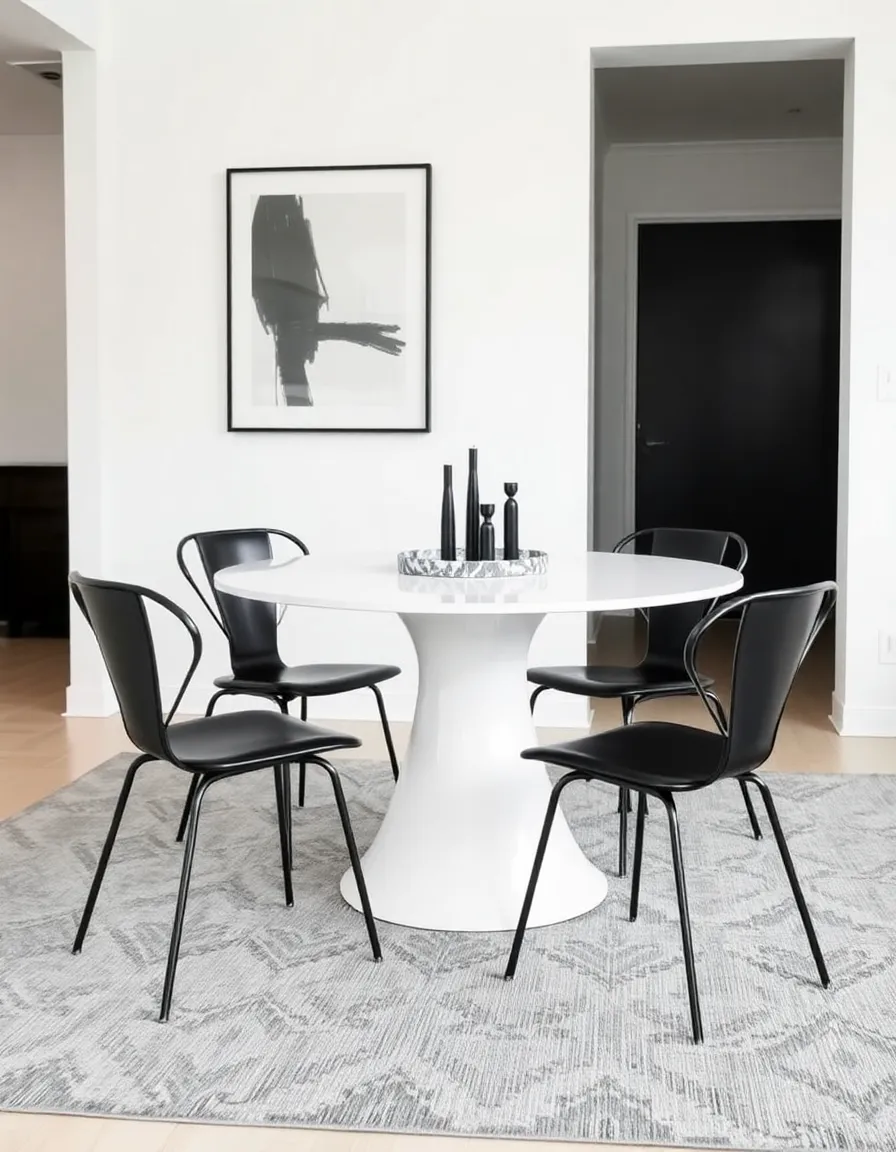
5. The Open Shelving Statement
Open shelving in a dining room? Yes, please! Not only does it keep things feeling airy, but it’s also a great way to display your favorite ceramics, glassware, or even a collection of vintage teapots (no judgment here). The key is to keep it curated—think “less is more” with a side of personality.
I’ll admit, I used to be a closed-cabinet kind of person. Then I tried open shelving, and suddenly, my dining room felt twice as big. Plus, it forces you to keep things tidy. Nothing like the threat of guests seeing your clutter to motivate a little organization, am I right?
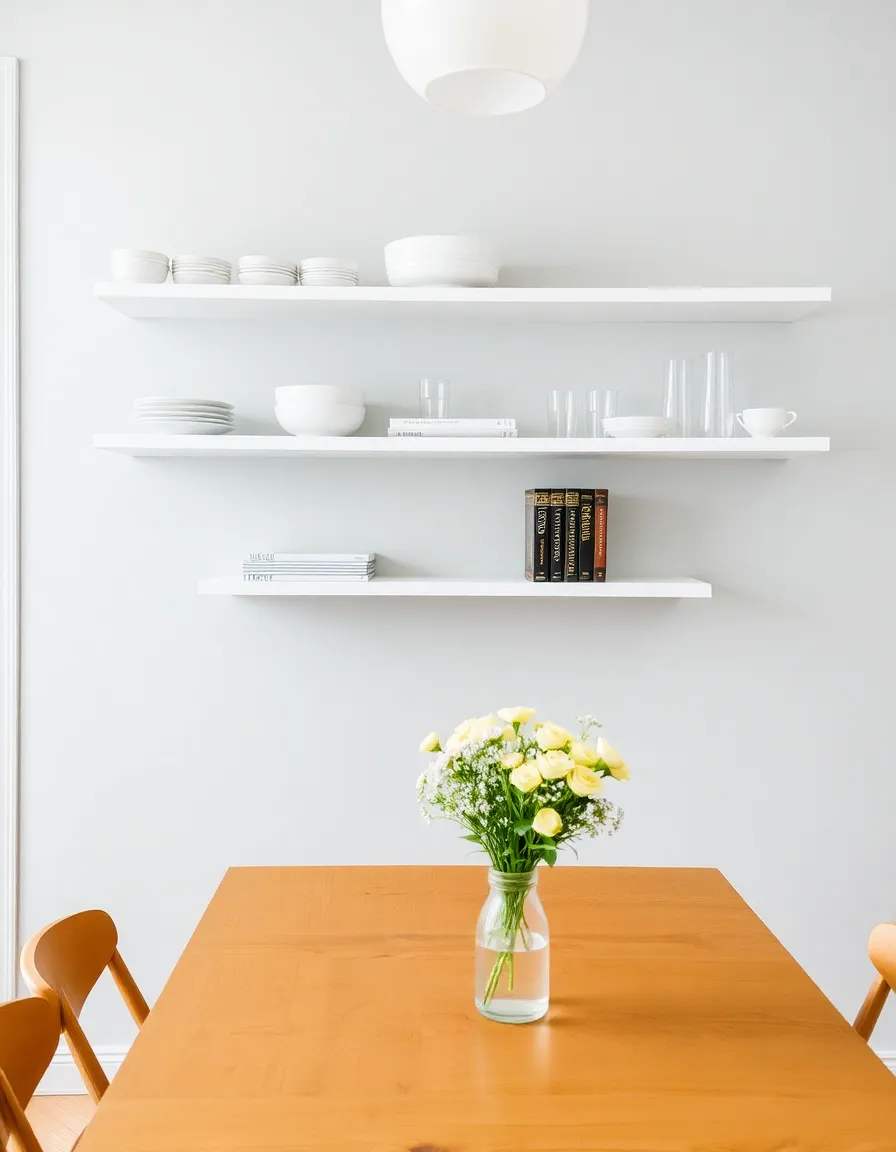
6. The Pop of Pastel
Who says Scandinavian design has to be neutral? A soft pastel—think blush pink, mint green, or powder blue—can add just the right amount of whimsy without straying from the minimalist vibe. Try a pastel rug under your dining table, or go bold with a set of colored chairs.
I tested this in my own home with a dusty pink table runner, and honestly, it’s the happiest little addition. It’s like a subtle nod to color without screaming, “Look at me!” Perfect for those who want to dip their toes into something beyond beige.
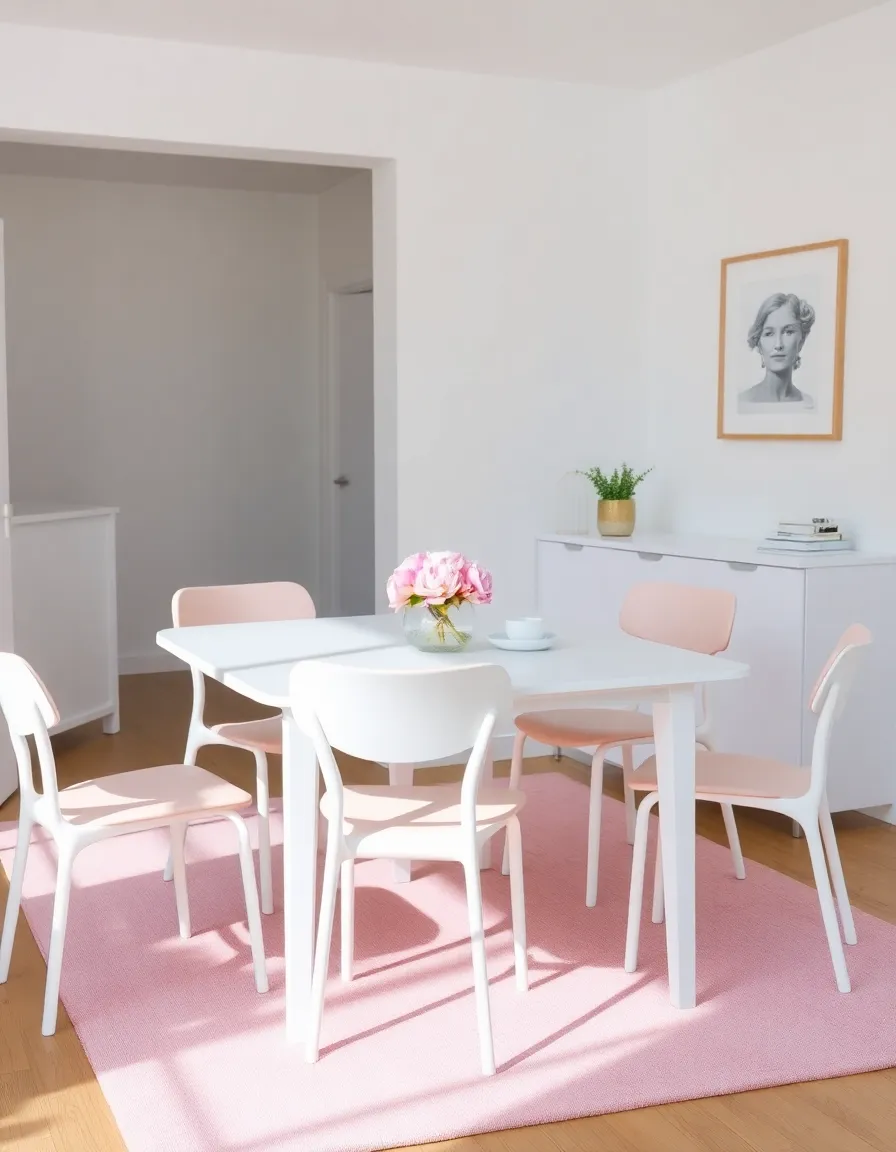
7. The Industrial Edge
Scandi design meets industrial? Absolutely. Think black metal frames, exposed bulbs, and concrete accents—but softened with wood and textiles. A reclaimed wood table with iron legs, paired with leather chairs and a wire pendant light, strikes the perfect balance between rugged and refined.
I used to think industrial meant “cold and unwelcoming,” but when you mix it with Scandinavian warmth, it’s a whole different story. It’s like the design equivalent of a leather jacket over a cozy sweater. Unexpected but totally works.
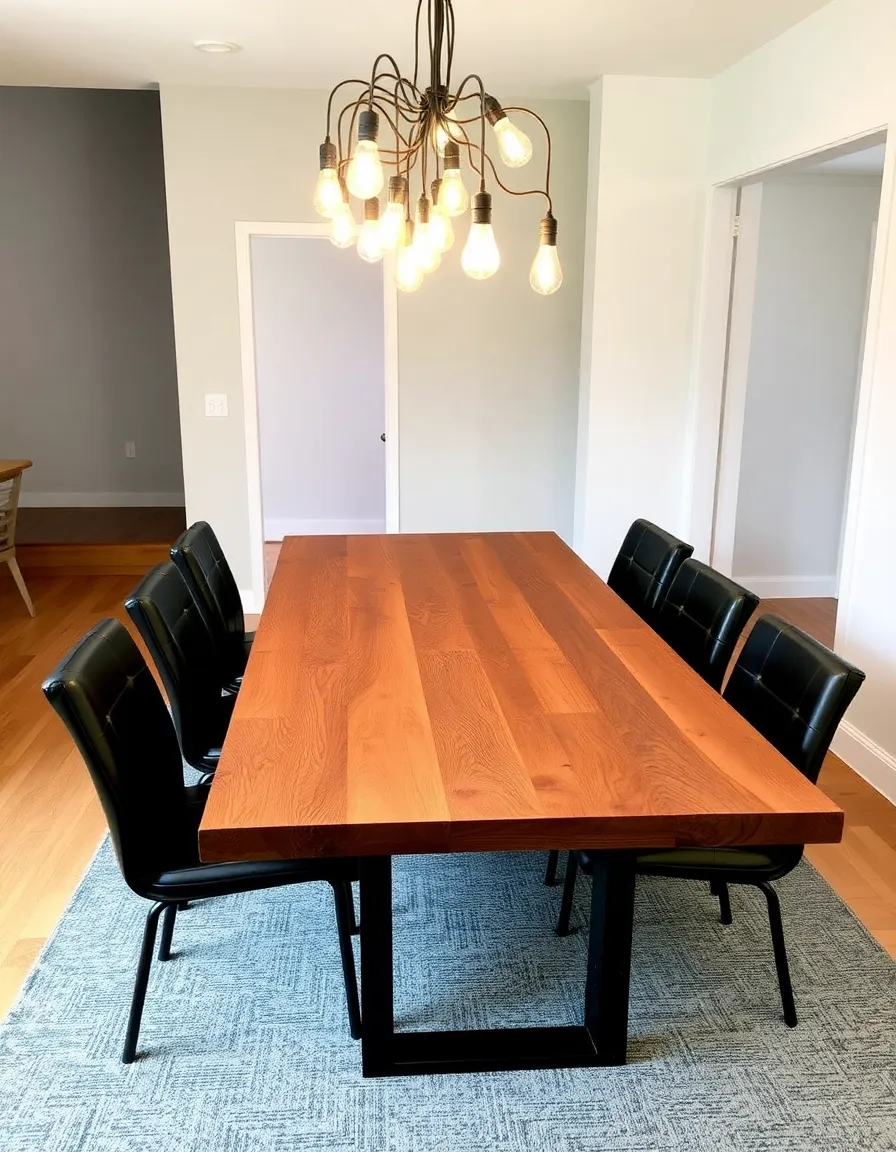
8. The Nature Lover’s Retreat
Bringing the outdoors in is a cornerstone of Scandinavian design. A dining room with plenty of greenery—whether it’s a potted fern in the corner, a eucalyptus centerpiece, or even a nature-inspired wall mural—feels instantly fresher. And let’s face it, we could all use a little more green in our lives.
I’m not gonna lie, I’ve killed my fair share of houseplants. But even I can manage a few low-maintenance succulents on the dining table. And if all else fails, there’s always faux greenery. No shame in the game.
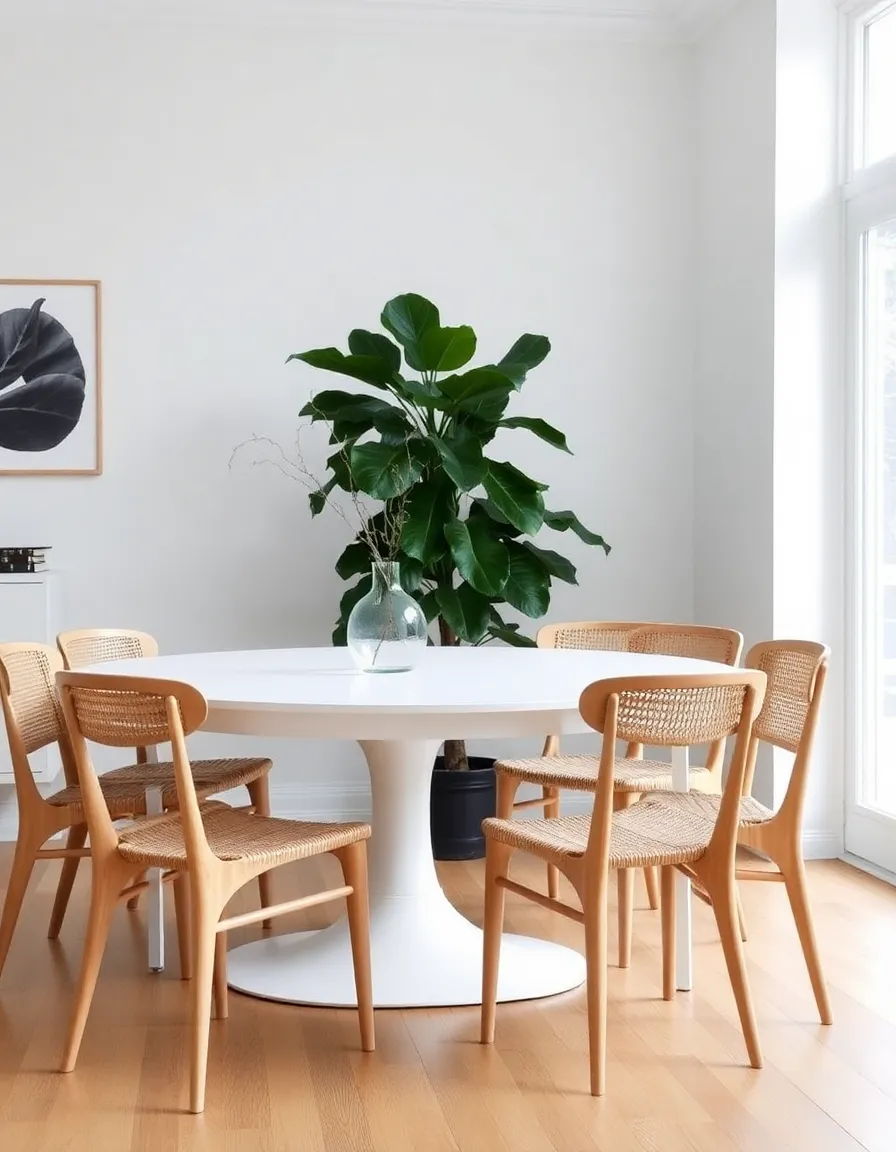
9. The Curved Lines Trend
Forget sharp angles—curved furniture is having a moment in Scandinavian design. A round dining table, an oval mirror, or even chairs with rounded backs soften the space and make it feel more inviting. It’s like the design version of a friendly smile.
I resisted this trend at first, thinking it might feel too “retro.” But after swapping my rectangular table for a round one, I’ll never go back. Conversation flows better, and somehow, it just *feels* cozier. Who knew geometry could be so emotional?
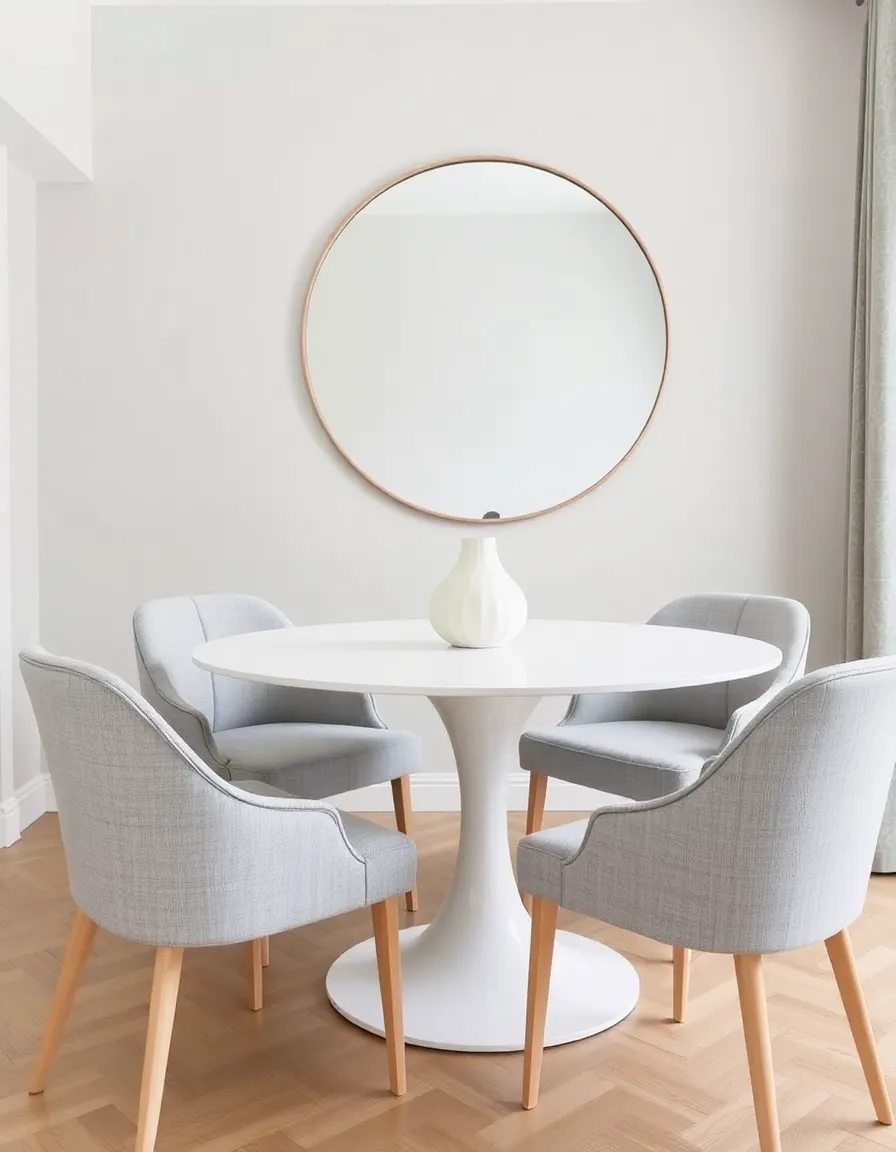
10. The Moody Dark Wood
Light wood is classic, but dark wood? Now we’re talking drama. A deep walnut or espresso-stained dining table adds richness and depth to a Scandinavian space, especially when paired with lighter walls and floors. It’s like the sophisticated older sibling of the usual light wood look.
I was nervous about going dark in my own dining room, worried it’d feel heavy. But paired with white walls and a few metallic accents, it’s actually *more* striking. Plus, it hides wine stains like a champ. Priorities, right?
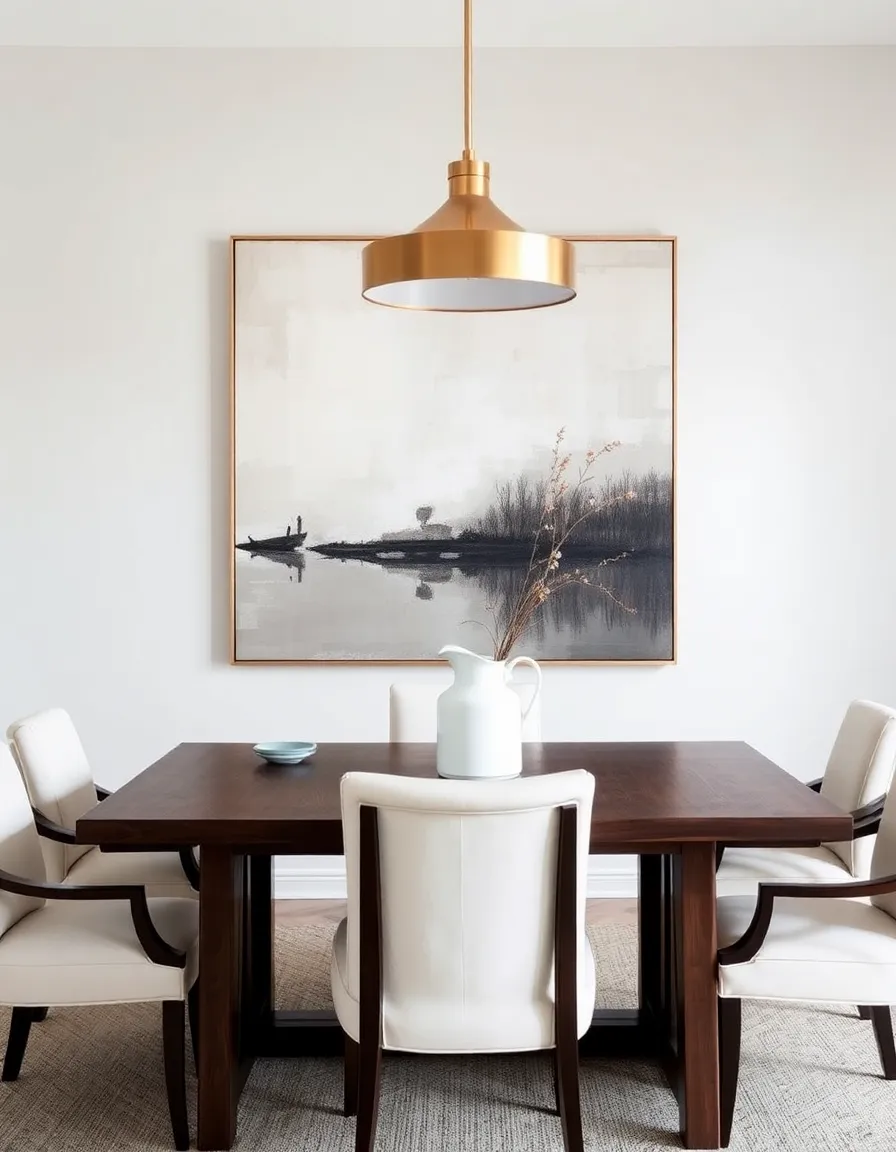
11. The Playful Mismatched Chairs
Who says all your dining chairs have to match? Mixing different styles—like a wooden chair here, a metal one there—adds personality without sacrificing cohesion. The trick is to stick to a consistent color palette or material to keep it from feeling chaotic.
I tried this in my own home, and honestly, it’s the best decision I’ve made. Not only does it look cool, but it also means I can collect chairs over time instead of dropping a fortune all at once. Budget-friendly *and* stylish? Sign me up.
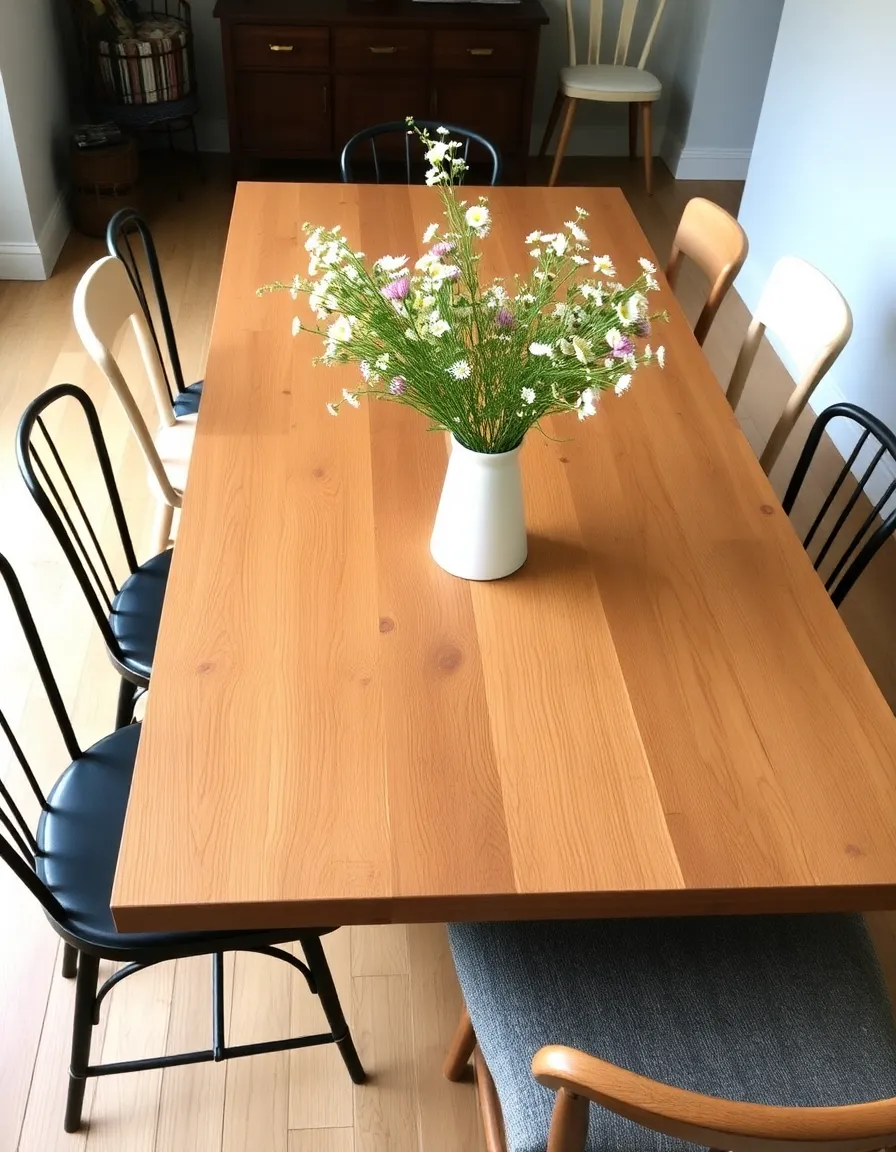
12. The Floating Table Illusion
For small spaces, a wall-mounted or “floating” dining table is a game-changer. It frees up floor space, making the room feel bigger, while still providing a functional surface. Pair it with a bench or slim chairs, and you’ve got a dining nook that’s as practical as it is stylish.
I live in a tiny apartment, and this trick saved my sanity. No more squeezing past chairs just to get to the kitchen. Plus, it looks *so* sleek. Minimalism for the win.
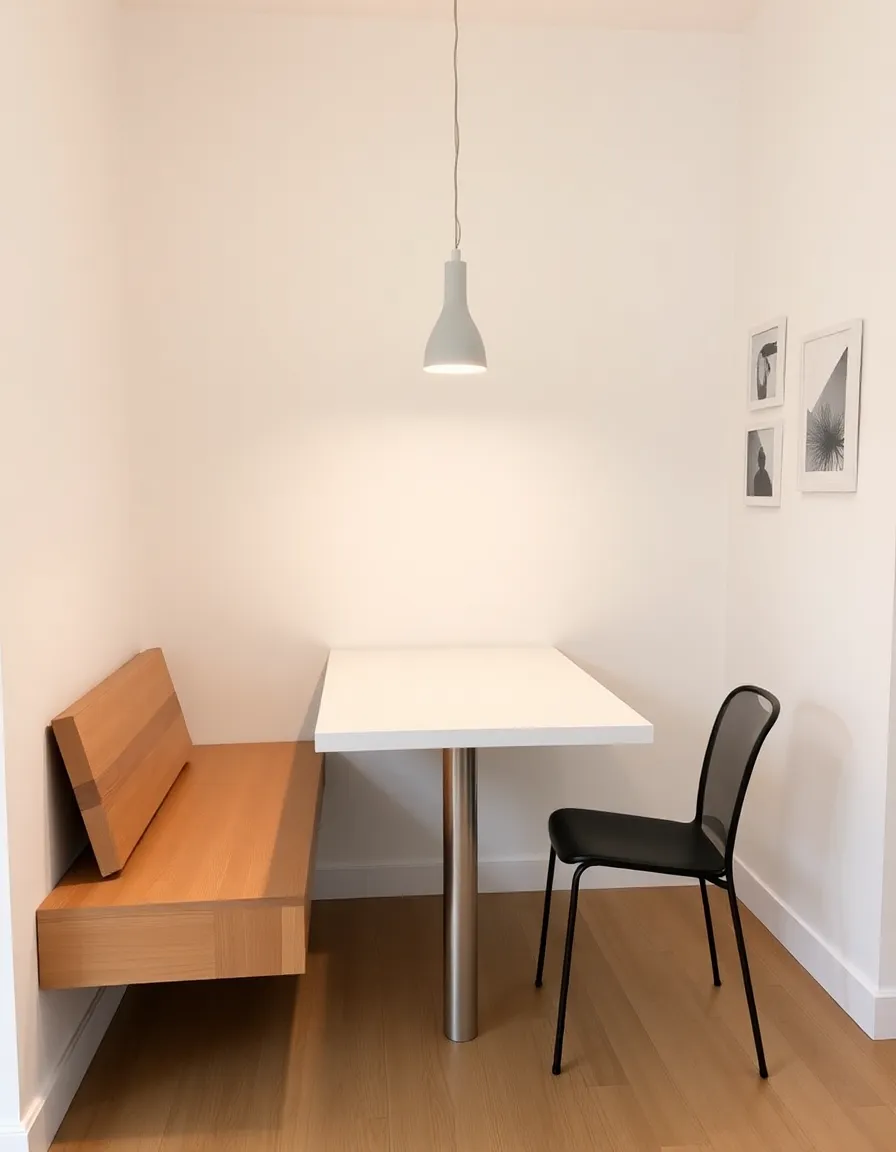
13. The Warm Neutrals Palette
Not into stark white? Warm neutrals like beige, taupe, and soft gray can create the same minimalist vibe but with a cozier feel. Think a beige rug under a wood table, linen curtains, and a few woven baskets for storage. It’s like a hug for your eyeballs.
I used to think neutral meant boring, but when you layer different shades and textures, it’s anything but. It’s the design equivalent of a perfectly brewed cup of tea—comforting and just right.
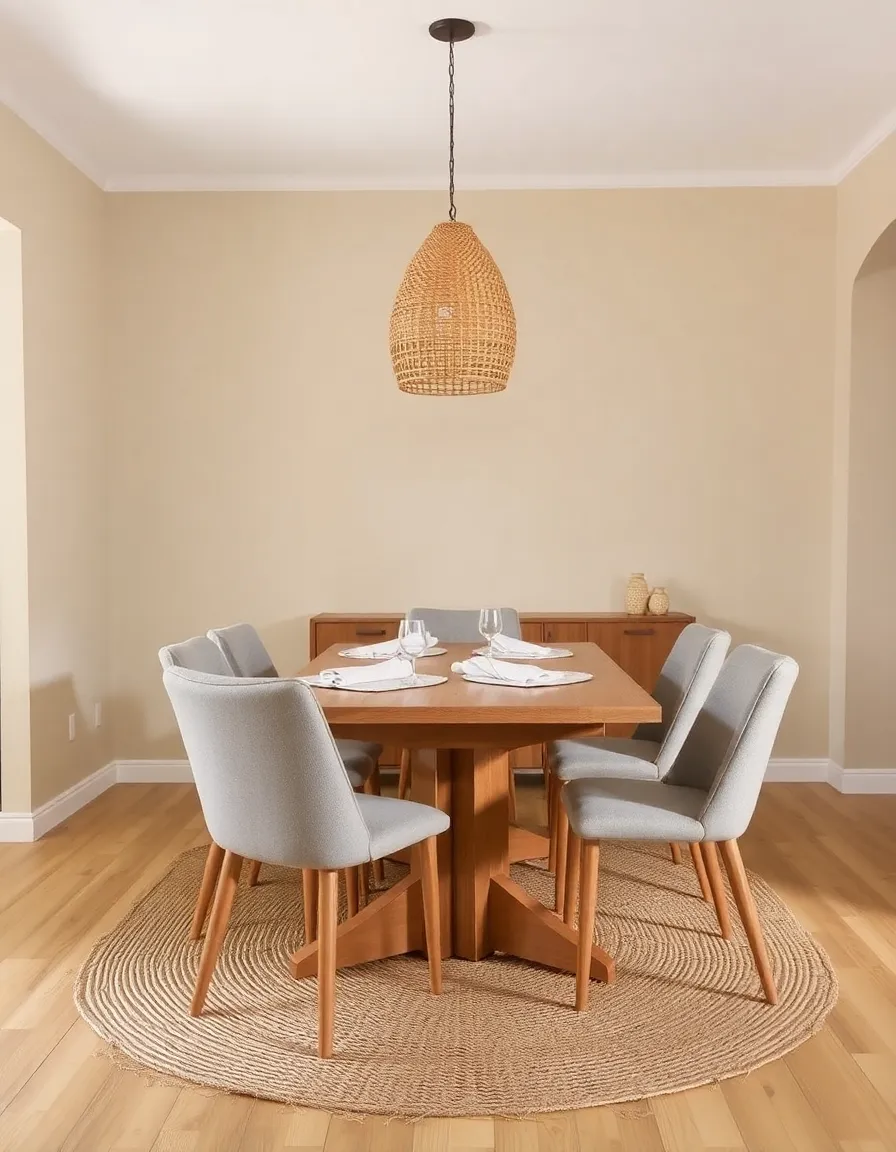
14. The Glass & Metal Mix
For a more modern take on Scandinavian design, try mixing glass and metal. A glass-top table with black metal legs, paired with transparent or metal chairs, keeps the space feeling open and airy. It’s like the room can breathe—no visual clutter, just clean lines.
I’ll admit, I was skeptical about glass tables (hello, fingerprints). But with a quick wipe-down, it stays looking pristine. And the way it reflects light? *Chef’s kiss.*
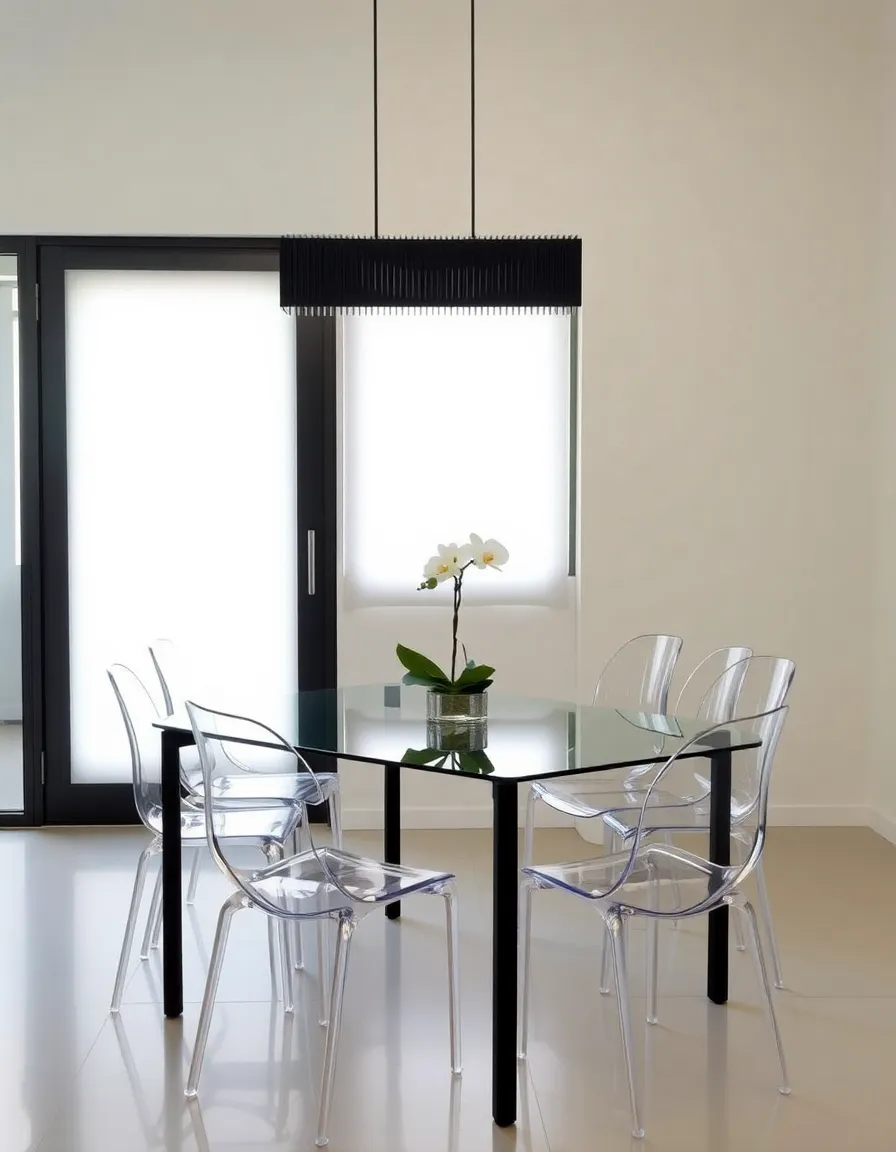
15. The Built-In Banquette
Want to maximize space *and* coziness? A built-in banquette is the answer. Upholstered in a neutral fabric and paired with a wood table, it’s the perfect blend of form and function. Plus, it’s a great way to sneak in extra storage underneath. Genius, right?
I once stayed in an Airbnb with a banquette, and let me tell you, it was life-changing. Not only did it save space, but it also made every meal feel like a cozy café experience. Now I’m plotting how to add one to my own home.
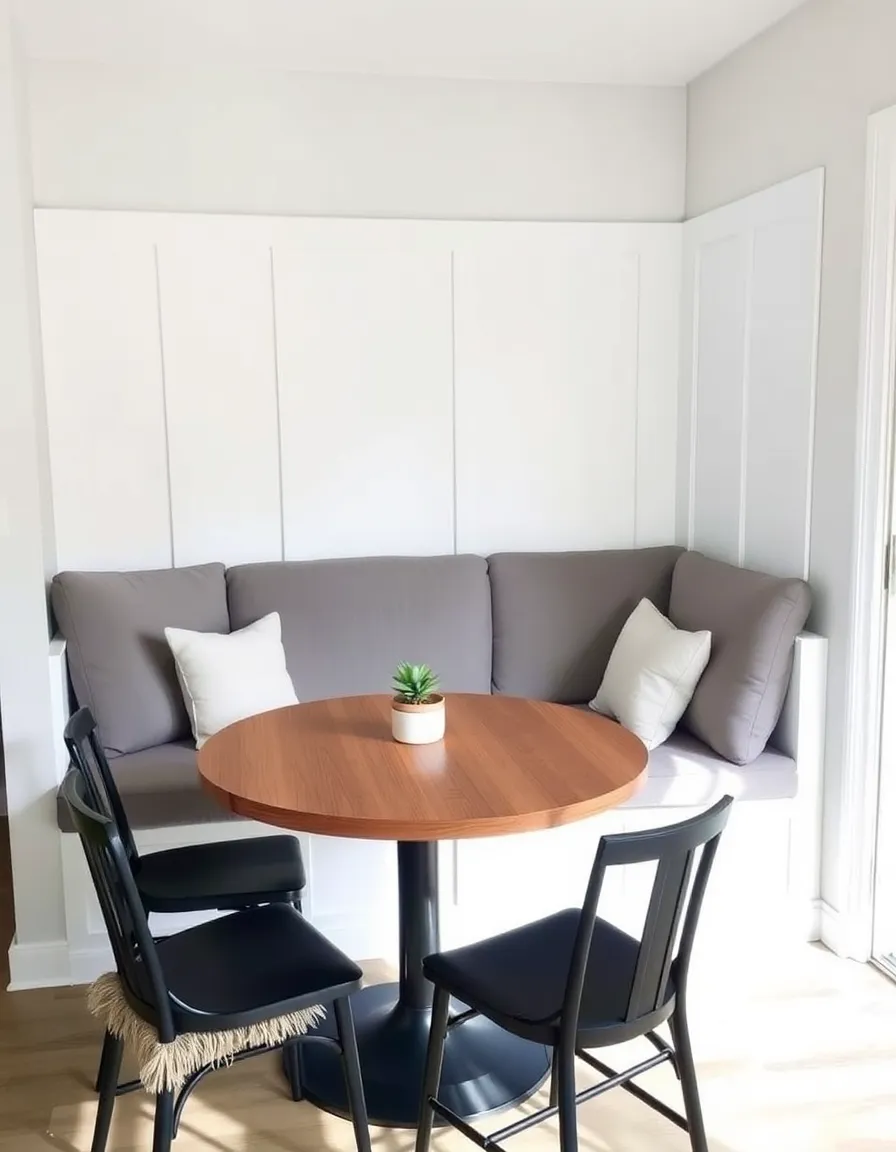
16. The High-Contrast Moment
For those who love bold statements, high-contrast Scandinavian design is the way to go. Think black walls with a white table, or vice versa. It’s dramatic, sure, but when done right, it’s also incredibly chic.
I tested this with a black accent wall behind my dining table, and wow—what a difference. It makes the table and chairs pop like they’re in a gallery. And the best part? It’s an easy update if you ever want to switch things up.
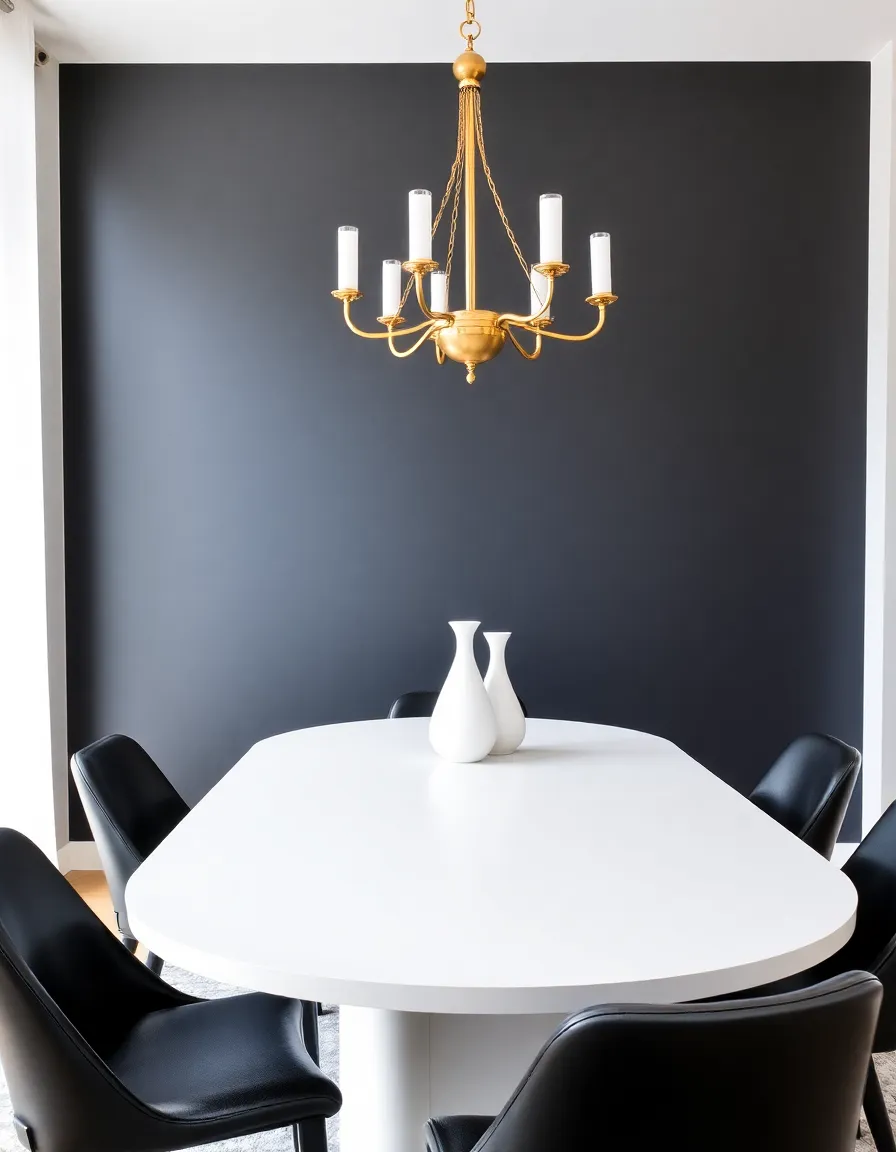
17. The Ultra-Minimalist Approach
If you’re all about “less is more,” this one’s for you. A single wooden table, one or two chairs, and *maybe* a pendant light. That’s it. No extras, no fuss—just pure, unfiltered simplicity.
I know, I know—this might feel a bit extreme. But there’s something so calming about a space that’s stripped back to its essentials. It’s like a reset button for your brain. And hey, if you ever need more seating, folding chairs exist for a reason.
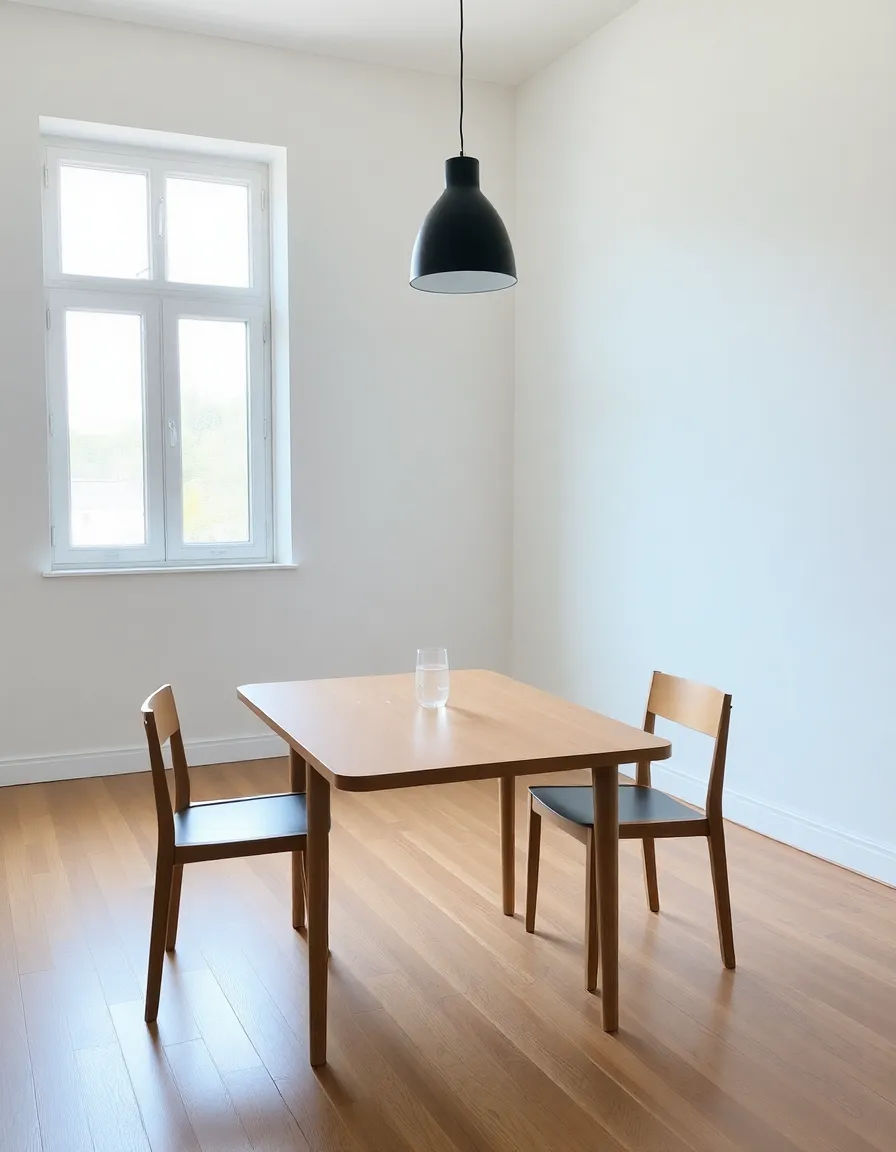
And there you have it—17 Scandinavian dining rooms that prove minimalism doesn’t have to mean boring. Whether you’re into cozy textures, bold contrasts, or somewhere in between, there’s a look here for everyone. The best part? You don’t need a huge budget or a fancy interior designer to make it happen. Just a little creativity and a willingness to embrace the “less is more” mentality.
So, which one’s your favorite? Are you team all-white-everything, or do you lean toward moody dark wood? Maybe you’re already plotting a banquette installation (same, honestly). Whatever your style, I hope this list inspires you to create a dining space that’s as functional as it is beautiful. After all, good design should make life better—one stylish meal at a time. Happy decorating!

